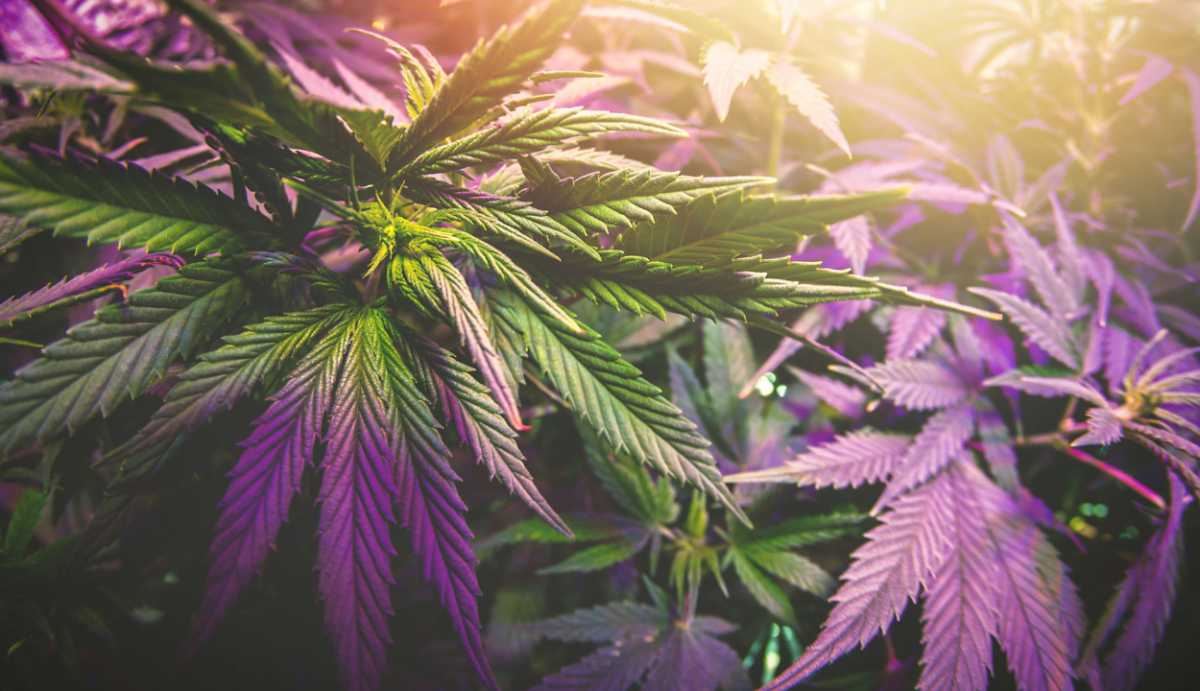Your Cart is Empty
FREE SHIPPING ON ALL ORDERS $75+
Cannabis (and hemp) is primarily made up of three important components, cannabinoids, terpenes, and flavonoids. All three of these ingredients are required to make a proper full-spectrum extract that provides the boosted benefits of the entourage effect—but what exactly are flavonoids? And what role do they play in the cannabis plant and in the human body?
Looking for full spectrum CBD? We recommend checking out one of our delicious CBD edibles or potent CBD oils in our Vitality Collection.
Table of Contents
What are Flavonoids?
Why are Flavonoids in Cannabis Important?
Research: Potential Benefits of Flavonoids
Common Cannabis Flavonoids
What’s the Purpose of Flavonoids in CBD Products?
Resources

Flavonoids are antioxidant-rich compounds that give plants their color. Plants and most plant-based products are rich flavonoids, which act as powerful antioxidants and may even offer various therapeutic effects.
Research suggests that there are about 20 flavonoids in cannabis, and they can account for up to 2.5% of cannabis’ dry weight. Some flavonoids are more elusive than others. Still, most flavonoids play similar roles in the cannabis plants, although different cannabinoids may be found in different parts of the stem, leaves, and flowers.
One major role of flavonoids in cannabis is to act as pigments that attract pollinators. In some cases, the pigments are also necessary to help filter certain UV rays to help the plant understand a photoperiod. Flavonoids are also crucial to cellular regulation in the cannabis plant and help fight off plant diseases.
Flavonoids are crucial to the wellbeing of the cannabis plant, but they may also offer therapeutic effects to those who consume cannabis products. Let’s discuss some of the most common flavonoids found in cannabis and what we know about their benefits:
Generally speaking, flavonoids are known to have many therapeutic benefits, although the evidence comes mostly from in vitro studies, and researchers have not yet been able to observe these same benefits in human trials.
Still, we know flavonoids may carry certain benefits, like anti-inflammatory, antioxidant, anti-fungal, anti-bacterial, and anti-cancer effects. In fact, the role of flavonoids in the plant is suggested to be similar to the way it acts in the human body, and the powerful antioxidant benefits may help ward off disease and infection and generally protect your health.
According to one review, five subtypes of flavonoids typically found in the Western diet have shown promise for reducing high blood pressure. A 2015 study found that consuming high levels of flavonoids as part of a regular diet can be linked to a lower risk of cardiovascular events.
A 2018 meta-analysis found that a diet rich in flavonoids can be correlated to a lower risk of type 2 diabetes. Another study even found that flavonoids pose a versatile option for developing anti-cancer drugs thanks to their potential to prevent the proliferation of cancer cells.
This research is preliminary, and we still need more research to fully understand the therapeutic applications of flavonoids, especially in cannabis.

Let’s take a look at some of the most common flavonoids found in cannabis and what we know about their therapeutic effects:
One in vitro study found that cannflavin A and B exert anti-inflammatory effects because it inhibits certain pro-inflammatory enzymes. One other study evaluating these anti-inflammatory benefits found that Cannflavin A and B were about 30 times more effective than aspirin in inhibiting hormone-like substances that can incite inflammation.
Vitexen and its isomer Isovitexin are both traditionally used in Chinese medicine applications, and limited research suggests that they have various Vitexin anti-oxidant, anti-cancer, anti-inflammatory, anti-hyperalgesic, and neuroprotective effects.
Kaempferol is a flavonoid that is found in plant-derived foods like kale, beans, tea, spinach and broccoli. A review of Kaempferol highlights its potential for reducing the risk of chronic diseases, acting as an antioxidant to protect against free radicals, and modulating cancer-related inflammation, metastasis and more. Some variable evidence suggests that it may also have a sort of antidepressant effect, though more research is needed.
Quercetin is a common and powerful flavonoid that is also found in green tea, red wine, and berries. It’s one of the most heavily researched flavonoids to date, and it’s thought to have potential anti-cancer, anti-allergy, neuroprotective, and anti-inflammatory effects.
One study suggests that quercetin may have antioxidant benefits that are stronger than that of vitamin C, vitamin E, or beta carotene. Research has also found that quercetin may prevent both acute and chronic inflammation and has significant anti-arthritis properties in animals. Another study found that quercetin shows promise in managing fibromyalgia thanks to its anti-inflammatory effects.

The cannabis plant contains over 200 unique active compounds. Roughly 10% of that composition is reserved for flavonoids, which is a pretty good portion when all things are considered.
Because flavonoids are a natural part of the hemp plant, it's only reasonable to think that they make it into the extracted oil and become an important part of the entourage effect, a synergistic relationship between hemp compounds that increases their benefits.
Some brands use a special filtering technique during their extraction process to remove everything but CBD, including flavonoids, to produce a pure CBD isolate. These types of products may have their place but the benefits pale in comparison to full-spectrum CBD products that contain an array of cannabinoids, terpenes, and flavonoids.
Flavonoids can be used to create targeted effects, like CBD for sleep or focus, though cannabinoids and terpenes are usually the compounds in focus when creating ailment-specific formulations. Either way, flavonoids belong in full spectrum hemp oil, and you’ll reap the greatest benefit from products containing flavonoids, even in trace amounts.
Looking for full-spectrum CBD products? OurVitality Collection uses full spectrum CBD extract and a blend of essential vitamins to elevate the benefits and optimize your wellness routine.
Comments will be approved before showing up.



